Filter by
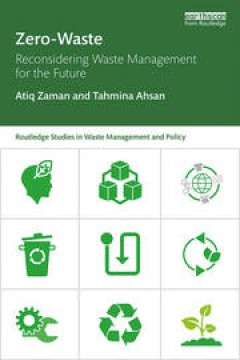
Zero-Waste : Reconsidering Waste Management for the Future
This book analyses ‘zero-waste’ (ZW) as an emerging waste management strategy for the future, which considers waste prevention through innovative design and sustainable consumption practices. Drawing on a diverse range of case studies from Australia, Bangladesh, Japan, New Zealand, Sweden, and the USA, this book explores why urban waste management systems still remain a major challenge f…
- Edition
- -
- ISBN/ISSN
- 9781315436296
- Collation
- -
- Series Title
- -
- Call Number
- 300
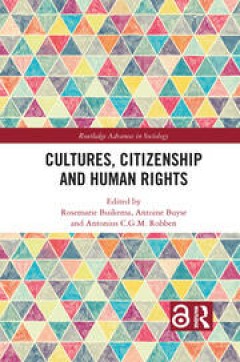
Cultures, Citizenship and Human Rights
In Cultures, Citizenship and Human Rights the combined analytical efforts of the fields of human rights law, conflict studies, anthropology, history, media studies, gender studies, and critical race and postcolonial studies raise a comprehensive understanding of the discursive and visual mediation of migration and manifestations of belonging and citizenship. More insight into the convergence…
- Edition
- -
- ISBN/ISSN
- 9780429198588
- Collation
- -
- Series Title
- -
- Call Number
- 306
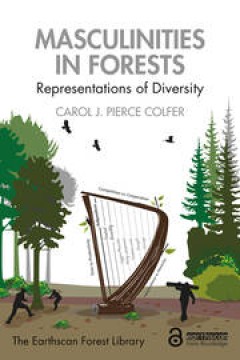
Masculinities in Forests : Representations of Diversity
Masculinities in Forests: Representations of Diversity demonstrates the wide variability in ideas about, and practice of, masculinity in different forests, and how these relate to forest management. While forestry is widely considered a masculine domain, a significant portion of the literature on gender and development focuses on the role of women, not men. This book addresses this gap and a…
- Edition
- -
- ISBN/ISSN
- 9780367815776
- Collation
- -
- Series Title
- -
- Call Number
- 370
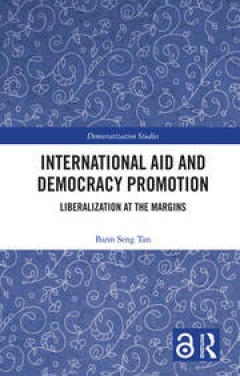
International Aid and Democracy Promotion
International Aid and Democracy Promotion investigates the link between foreign aid and the promotion of democracy, using theory, statistical tests, and illustrative case studies. This book challenges the field of development to recognize that democracy promotion is unlike other development goals. With a goal like economic development, the interests of the recipient and the donor coincide; w…
- Edition
- -
- ISBN/ISSN
- 9781003050438
- Collation
- -
- Series Title
- -
- Call Number
- 327
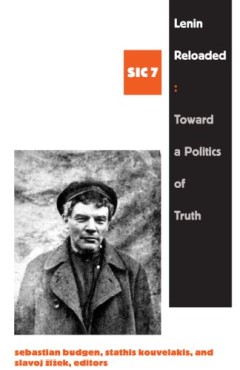
Lenin Reloaded : Toward a Politics of Truth, sic 7
Lenin Reloaded is a rallying call by some of the world’s leading Marxist intellectuals for renewed attention to the significance of Vladimir Lenin. The volume’s editors explain that it was Lenin who made Karl Marx’s thought explicitly political, who extended it beyond the confines of Europe, who put it into practice. They contend that a focus on Lenin is urgently needed now, when global c…
- Edition
- -
- ISBN/ISSN
- 9781478091400
- Collation
- -
- Series Title
- -
- Call Number
- 320 LEN
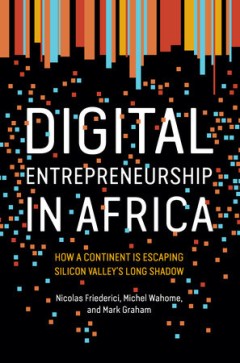
Digital Entrepreneurship in Africa: How a Continent Is Escaping Silicon Valle…
The hope and hype about African digital entrepreneurship, contrasted with the reality on the ground in local ecosystems. In recent years, Africa has seen a digital entrepreneurship boom, with hundreds of millions of dollars poured into tech cities, entrepreneurship trainings, coworking spaces, innovation prizes, and investment funds. Politicians and technologists have offered Silicon Valley�…
- Edition
- -
- ISBN/ISSN
- 9780262362849
- Collation
- -
- Series Title
- -
- Call Number
- 338.04

Infrastructural Brutalism: Art and the Necropolitics of Infrastructure
How “drowned town” literature, road movies, energy landscape photography, and “death train” narratives represent the brutality of industrial infrastructures. The open access edition of this book was made possible by generous funding from Arcadia – a charitable fund of Lisbet Rausing and Peter Baldwin. In this book, Michael Truscello looks at the industrial infrastructure not as …
- Edition
- -
- ISBN/ISSN
- 9780262358736
- Collation
- -
- Series Title
- -
- Call Number
- 320.01
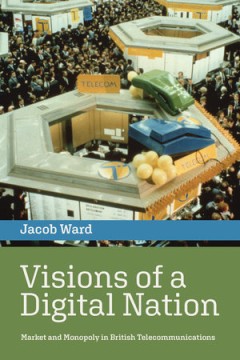
Visions of a Digital Nation: Market and Monopoly in British Telecommunications
Why the privatization of British Telecom signaled a pivotal moment in the rise of neoliberalism, and how it was shaped by the longer development and digitalization of Britain's telecommunications infrastructure. When Margaret Thatcher sold British Telecom for £3.6 billion in 1984, it became not only, at the time, the largest stock flotation in history, but also a watershed moment in the ris…
- Edition
- -
- ISBN/ISSN
- 9780262375528
- Collation
- -
- Series Title
- -
- Call Number
- 384

Habitats and Biota of the Gulf of Mexico: Before the Deepwater Horizon Oil Sp…
Environmental management; marine; freshwater sciences
- Edition
- Ed. 1
- ISBN/ISSN
- 9781493934560
- Collation
- 891
- Series Title
- -
- Call Number
- 333.71 HER h
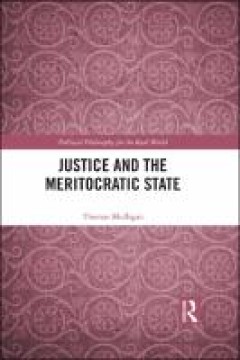
Justice and the Meritocratic State
Like American politics, the academic debate over justice is polarized, with almost all theories of justice falling within one of two traditions: egalitarianism and libertarianism. This book provides an alternative to the partisan standoff by focusing not on equality or liberty, but on the idea that we should give people the things that they deserve. Mulligan sets forth a theory of economic j…
- Edition
- Ed. 1
- ISBN/ISSN
- 9781351980777, 9781315270005
- Collation
- 238
- Series Title
- Political Philosophy for the Real World
- Call Number
- 335 MUL j
 Computer Science, Information & General Works
Computer Science, Information & General Works  Philosophy & Psychology
Philosophy & Psychology  Religion
Religion  Social Sciences
Social Sciences  Language
Language  Pure Science
Pure Science  Applied Sciences
Applied Sciences  Art & Recreation
Art & Recreation  Literature
Literature  History & Geography
History & Geography